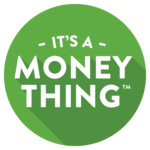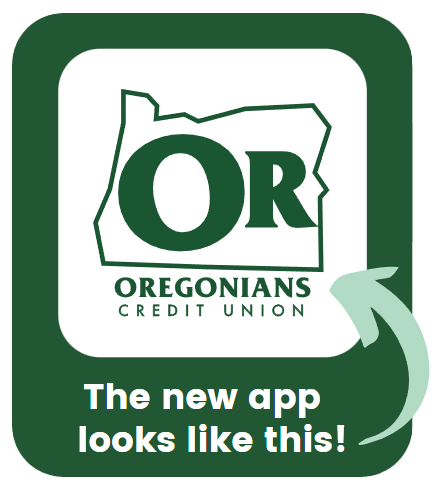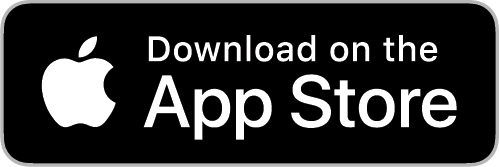Using Your Credit Card
It's a Money Thing Lesson #35
 How to Overcome ‘Credit Card Shyness’
How to Overcome ‘Credit Card Shyness’
News outlets and credit card companies are quick to label millennials as being credit card-shy. According to a recent survey, millennials apparently fear their credit card debt more than climate change, the threat of war and even death. It may sound like an overreaction, but the underlying trend is substantial: millennials are carrying fewer cards and have lower balances, compared to the previous generation of young adults.
Cause for concern
Hesitation around opening and using a credit card is completely justifiable—it invites the possibility of overspending, missing payments, racking up fees, paying high interest rates and dealing with the resulting financial stress. Despite millennials carrying fewer cards, credit card debt is on the rise, with Americans carrying an average balance of $6,375 in 2017. Credit cards can be seen as a gateway to spiraling debt—and for some, that’s enough to justify reaching for a debit card or for cash instead.
Being debt-conscious isn’t inherently bad—in fact, being able to see past the convenience of credit cards to their potential pitfalls is a responsible perspective to have. Credit card transactions are essentially mini-loans that can lead to serious debt when used carelessly, but avoiding them altogether is also problematic—and not just for the credit card companies who issue them. An aversion to credit cards can negatively impact future financial and lifestyle decisions.
The consequence of being credit card-shy
Credit card use plays a huge role in contributing to your credit history, which in turn is an important part of your financial footprint. Credit scores are a key component in many of the major purchases you will make in your lifetime, such as vehicles or homes. A good credit score may also affect your ability to secure a loan for a small business or a future entrepreneurial venture. Some employers and landlords perform credit checks as part of their application process. Your credit history can therefore have an impact on your lifestyle, on your livelihood and even on where you live.
Avoiding credit cards won’t actively damage your credit rating, but it can hold you back from achieving the types of scores needed for the best interest rates on auto loans and mortgages. While it’s possible to build your credit score with other borrowing products such as student loans or personal lines of credit, credit cards are the easiest way to boost your credit score because of their accessibility. When used responsibly, credit cards can build a positive credit history with little or no cost to you.
Using credit responsibly
The only way to sidestep any and all credit card-related fears is to follow this strategy: pay it in full and on time. This means that you treat your credit card as you would cash: use it to make regular purchases within your budget that you know you can afford. You don’t treat it as additional available income. You don’t use it to fill the gaps when your paycheck isn’t quite covering everything you want it to. You only use it to pay bills and make purchases that you can cover with money that you already have in your bank account.
Paying your credit card bill in full means you’re not carrying a balance and therefore cannot be charged interest. Paying your bill on time protects you from being charged late fees and other penalties. By paying in full and on time, the only cost to using a credit card (depending on the issuer and the type of card) is the annual fee. Paying in full and on time also allows you worry-free enjoyment of the perks and rewards that your particular credit card may have—and in many cases, the monetary value of these perks is greater than the annual fee.
Your guide to paying in full and on time
Paying in full and on time is a simple rule to remember, but there are a couple of things you need to be aware of in order to follow it successfully. Use the following questions as a guide to using your credit card with confidence.
- Do you currently have credit card debt?
If the answer is no, carry on to the next question! If the answer is yes, you must develop a debt repayment strategy right away. If you need help devising a plan, reach out to your credit union for available resources.
- Do you know when your billing cycle opens and closes?
It’s important that you understand the billing cycle for each credit card you own. It’s easy to assume that billing cycles are monthly, but in fact they vary depending on the card issuer and can range between 20 and 45 days. Your credit card statement will disclose when your billing cycle opens and closes—take a minute to look at your last few statements and determine where your billing cycle starts and ends. Does it start on the first day of each month? Does it start mid-month? Does it close on the same date each month, or does it vary?
- Do you know your personal payment due date?
Your credit card statement will clearly list your payment due date, but in order to dodge any late fees, you also need to allow time for your payment to process. For each credit card that you use, figure out what your personal payment due date is—that is, the day by which you must pay your bill in order for your funds to transfer in time. It’s smart to leave a buffer of a week or more before the due date printed on your statement.
- Do you have an emergency fund?
When an emergency expense suddenly pops up, it’s easy to reach for your credit card in response. A large emergency expense can prevent you from paying your balance in full and on time and derail your good credit habits. The best defense is to have savings set aside to minimize your reliance on your credit card. The regular recommendation is six months’ worth of expenses, but if you’re just starting out, set smaller $500 milestone goals.
A little bit of knowledge and self-discipline is all it takes to successfully use the “pay it in full and on time” strategy. This approach allows you to fully enjoy the convenience and rewards of your credit card while contributing to a positive credit history that will serve you well when it comes time to make a large purchase. There’s no need to be shy when using your credit card responsibly.

Was this information useful? Visit our It's A Money Thing home page for more quick videos and helpful articles to help you make sense of your money, one topic at a time! Check back, new topics will be introduced regularly.




